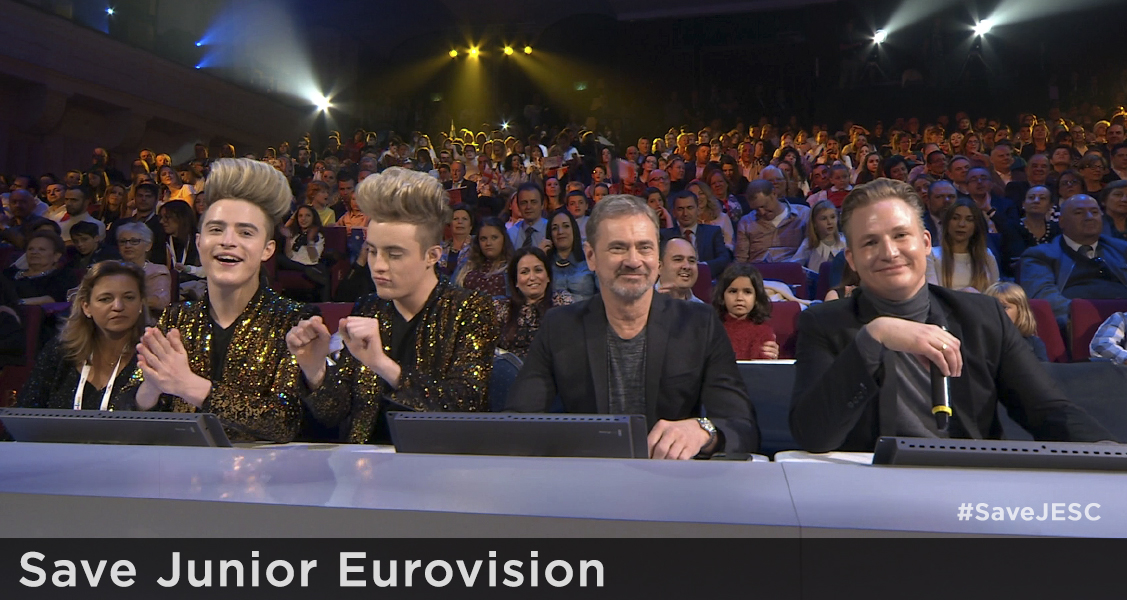EDITORIAL – Today we continue our review of the aspects that need to change to improve the format of the Junior Eurovision Song Contest, so it becomes a favourite educational show for the youngest. This time, we will talk about how the voting system has affected the competition and the brand new online voting, which needs improvements to be a good alternative to the telephone voting.
Last week, we talked about the lack of dynamism and creativity in the current format of the song contest for children. This has its origins in the appraisal criterions used by the jury members to assess the participating entries. As we have already mentioned, the judges have become too demanding with the live performance of the contestants.
In the earlier editions of the contest, the winner of Junior Eurovision was selected by solely public vote. Four years later, the jury vote was introduced and would decide half of the final outcome. With the passing time, the Steering Group and the European Broadcasting Union were obliged to replace the SMS voting, so in 2016 they announced changes to the voting format. Last year, the televoting was replaced with a kids’ jury in each country, while a three-person jury panel was allocated as an additional country.
We don’t know the reasons why the televoting is not an option anymore, but, according to some sources, the decision was made because of the low popularity in some countries and the high cost it required. This means that the return of the telephone voting is very unlikely. It is believed that in 2016 the EBU was unable to find an alternative to the SMS, so it was not until this year that they introduced the online voting, which has proved to need improvements.
The results of the last edition of Junior Eurovision were decided by an equal combination of online audience vote and the votes of a professional jury panel in each country, made up of adults and teenagers, mainly singers. Once again, we could see that the judges boosted slow songs and powerful voices, which increases what we mentioned in previous articles of this topic: the lack of creativity and musical variety, a song contest for a few privileged.., etc.
The main problem of this competition is the jury voting, as the panel members vote following a wrong standard, which affects the competing entries of next editions. This makes the show unattractive to children and teenagers that cannot fulfill their dream to perform at Junior Eurovision. For this reason, the juries should change their criteria and be less demanding with the voice of the participants, which would also reduce the pressure on them.
In 2014, the Bulgarian singer Krisia Todorova had the flu the week before the contest and lost her voice. This had consequences in the results of the contest, the juries placed Bulgaria fourth, while they were first in the public vote. When both results were mixed, Krisia, Hasan and Ibrahim got the second place and didn’t win the competition as the audience thought they deserved.
As we have already mentioned, the online voting has come to stay. In 2017, we could see that the new alternative to the telephone voting still needs improvements to be a viable option. The main problem with this system was that people could vote for their own country, which led countries with few fans and followers to low places. It is essential that the new online voting platform has got IP blocking, so people can’t vote for their own country nor more than once. Moreover, it should detect when voters try to scam the website by using software to change IP.
All in all, the juries should mainly rate the song, then the staging and finally the voice. We think that this change would have a positive effect on the contest as a whole and the aspects mentioned in previous articles. The online voting is a good alternative that allows people worldwide vote at Junior Eurovision, but there is no doubt that it needs to be improved. So, we hope that the European Broadcasting Union will work on it and these fails will be fixed for the 2018 edition.
Stay tuned to our website for more information about the aspects that need to be improved following a constructive criticism of the Junior Eurovision Song Contest.
Author: Belén G.


I was in Tiblisi and we were trying to vote through the official website. We were not able to do it because the website crashed due to high votes of people. In the first wave of voting it was ok.
I should experts should examing the volume of entries durng the voting time. Give some recommendations in order that in the future the website won’t crashed due to high volume of entries.